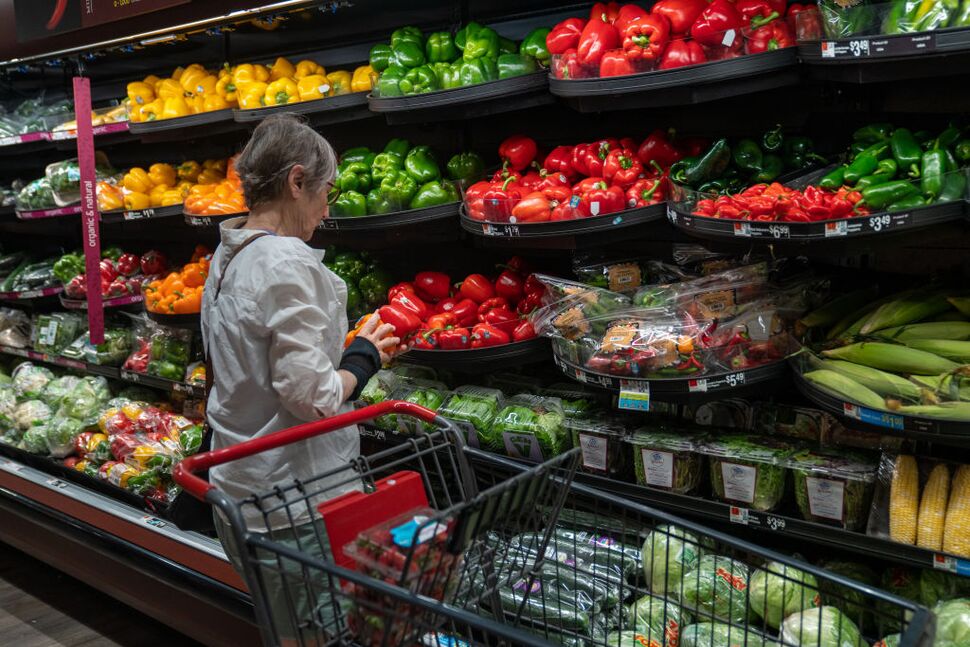Listeners:
Top listeners:
-
 play_arrow
play_arrow
The Breeze Radio The Breeze Radio
Experts: Medicaid, SNAP Cuts Could Hurt Economy, Strain State Budgets

Trump’s “big beautiful bill” aims to boost the economy, but experts say it could have the opposite effect in many places.
Federal cuts to Medicaid and the Supplemental Nutrition Assistance Program will have ripple effects in every state, including job loss, reduced consumer spending and strained state budgets, experts warn.
President Donald Trump signed the divisive “Big Beautiful Bill” into law in July, finalizing $1.2 trillion in cuts to social assistance programs over the next decade. The legislation introduces stricter work requirements and tightens eligibility for both Medicaid and SNAP, cuts that will leave millions without access to health care and food assistance.
Advocates and policy experts say the consequences will be severe, impacting everything from family grocery budgets to the stability of local businesses. In many states, especially in low-income and rural areas, these programs help sustain jobs and account for a significant share of economic activity.
While the Trump administration praises the legislation, saying it will “unleash economic growth,” researchers say the cost at the state and individual level could outweigh any federal gains.
Cuts Threaten to Collapse Local Economies
Over 20% of Americans are enrolled in Medicaid, according to the Department of Health and Human Services. SNAP funds the grocery bills of over 40 million Americans.
The programs were created to support low-income households, about 12 million of which receive benefits through both programs.
With the highest percentage of residents enrolled in SNAP and Medicaid out of every state, New Mexico is at particular risk of seeing devastating impacts on people who use the programs to get access to essential services.
“Food is life,” says Dawn Hommer, chief executive officer at the Community Action Agency of Southern New Mexico. “And sometimes, that little bit of assistance is what it takes to get them through the month.”
Experts say the impact of these cuts could also stretch beyond individual families into the core of state economies.
In rural areas – where a quarter of all residents are covered by Medicaid – the cuts will likely lead to service reductions in health care and hospital closures, experts say.
Leighton Ku, director of the Center for Health Policy Research at George Washington University, analyzed an earlier iteration of the bill and found it would result in 1.22 million lost jobs nationwide in 2029. He expects the impact of the final law to be similar – or worse.
States where SNAP and Medicaid make up over 6% of GDP – New Mexico, Louisiana and Kentucky – are also among the poorest in the country. Experts warn they are likely to face the steepest economic fallout, and may reduce or cut programs when unable to keep up with the rising financial strain.
Such states could see entire industries destabilized, as cuts slow the flow of federal dollars that support medical institutions and grocery stores.
Hospitals and grocery stores, for example, will be forced to tighten budgets, which could mean layoffs and cuts to contracts with external vendors, amplifying the economic damage across other industries, Ku says.
“The effect keeps rippling through,” Ku says. “By the time that it comes to cases of reduced wages, then really what happens is you or I lose the money. This makes it harder for us to buy groceries, pay for our rent or mortgage.”
In some states, existing budgetary constraints will exacerbate the issue. Unlike the federal government, every U.S. state except Vermont is required to keep a balanced budget at the beginning of the fiscal year.
And with decreased wages, Ku says, states will begin to see less revenue from taxes.
“When businesses lose revenue, when people lose jobs, the amount they pay in income and sales tax and other taxes … goes down,” Ku says. “This means that states will have more problems figuring out how to compensate for the Medicaid or SNAP losses, as well as doing things to pay for (other services).”
Federal tax cuts are not expected to offset job losses even if they prompt some spending, according to the Washington Center for Equitable Growth. The center cites two reasons: Most tax cuts will go to households making over $217,000 a year, and those who do benefit from higher tax cuts do not live in the same areas as Medicaid and SNAP recipients.
For states already stretched thin, many will have to make tough decisions when they reconvene for their 2026 legislative sessions. Congress will determine final funding levels during appropriations processes ahead of the September deadline.
Families Face Food Insecurity and Health Crises Under Cuts
Of course, the most direct impact is on low-income families themselves.
The legislation will leave 10 million Americans uninsured by 2034, according to new estimates by the Congressional Budget Office, while the Urban Institute projects that 22.3 million households will lose some or all of their SNAP benefits.
“We’re going to take families that are already struggling and make it worse,” says Hommer, from the New Mexico agency. “What we see here are people that really want to work very hard, and they’re doing it for themselves and for their families and for their community … and having to worry about food on your table is unimaginable when you’re trying to just make it.”
For those who lose their benefits, Hommer says, it will mean more than just a missed doctor’s visit or skipped meal. The effects will ripple through their lives, from the parents’ anxiety down into the child’s education.
“As a mom or a dad, if you’re not able to access health care and you’re not feeling well, how present are you as a parent during that time?” she asks. “It’s just such an intertwined ecosystem that supports these families.”
Ku warns that children will see lasting impacts from the cuts.
“For the recipients of Medicaid and SNAP – who are low-income people in the first place – these are really disastrous consequences,” he says. “For children who are growing up in more dire circumstances, there’s going to be long-term developmental emotional problems.”
And without access to health care, Hommer worries the economy will see further impacts from an increasingly ill workforce after the cuts go into effect.
“To have a healthy economy, you have to have a healthy workforce,” she says.
Written by: Joshua Stuart
Similar posts
Recent Posts
- Lies, Damned Lies and Crime Statistics
- ‘Shame On You’: Motion To End ICE Contract Rejected By Islip Town Board
- Experts: Medicaid, SNAP Cuts Could Hurt Economy, Strain State Budgets
- Toddler, 2, Dies After Being Struck By Vehicle At Belmont Lake State Park On LI: Police
- New Report Points to Progress on Teen Mental Health
Recent Comments
No comments to show.-

Regular Programing
Playing those non-stop feel good tunes from the 60s to the 90s.
close Chart
-
-
 play_arrow
play_arrow
You Are (Single Edit) Lionel Richie
-
-
-
 play_arrow
play_arrow
Da Ya Think I'm Sexy? (2008 Remaster) Rod Stewart
-
-
-
 play_arrow
play_arrow
I Just Called to Say I Love You (Single Version) Stevie Wonder
-
-
Top popular

Brood Of 7 Ducklings Saved From Storm Drain On Long Island Expressway

How the Passage of the ‘Big, Beautiful Bill’ Could Impact Med Students and Hospitals

2 Charged In Connection With Unlicensed Cannabis Sales At Smoke Shops In Brookhaven Town: Cops

These Are The Top 3 Beaches In New York, Report Says

Trump Could Meet Putin as Early as Next Week, White House Official Says
Get in Tune with Us!
Reach out to us for inquiries, requests, or collaborations, and let’s keep the music alive.
© 2025 Stuart Broadcasting Studios. All Rights Reserved.












Post comments (0)